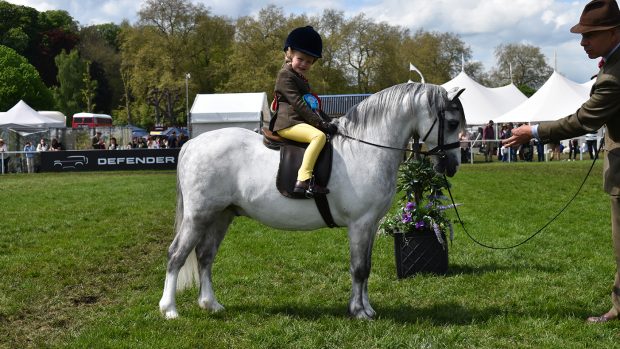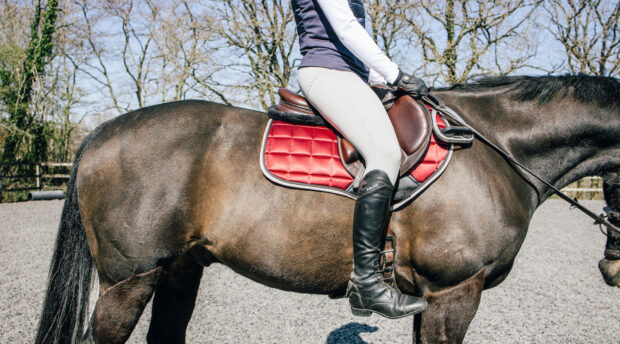Jousting — the sport of charging at either a live opponent or a target with a lance — is spectacular, but you might think it no longer has a place in modern horsemanship. Well, it’s not just the province of re-enactment events or equestrian displays — modern jousting is alive and well, and if you fancy a unique challenge, you can even have a go.
Karl Ude Martinez, who runs the UK’s only jousting school, The Knights of Middle England in Warwickshire, always had a fascination with knights and horses growing up.
“When I was 14, I got a last-minute chance to join in a show as a stand-in rider,” he says. “I literally had to learn on the go, but I loved it and ended up training with that team for years before hiring myself out as a professional rider for jousting and stunt shows. When I left university, I trained as an actor working in TV, film and theatre and also continued to work at the family equestrian centre. Jousting is such a huge part of our equestrian history that one day I had the idea to open a ‘knight school’ and teach people how to do it. We’re based near the famous Warwick Castle, a perfect setting for a medieval jousting experience — anyone can come to learn how to be a knight.

Karl in action
“The perfect knight’s steed has to have a good temperament, and be trainable, responsive and well-schooled. You have to ride with your left hand while holding a lance or sword in your right, so the horse needs to listen to the leg and your seat. He also has to be able to be bold and gallop towards an oncoming horse, and be happy with loud noises, flags, and flapping cloaks!
“The type of horse we use varies, from Irish Draught crosses, cobs, rehabilitated thoroughbreds and flashy Spanish Andalusians, to name a few. Any horse with the right temperament and training can joust.”
Dominic Sewell (pictured top) of Historic Equitation in Northamptonshire came to jousting via an even less conventional route than Karl, as he wasn’t already a horse rider.
“In my mid-20s, I was part of a re-enactment group as a foot soldier, and at one battle a friend of mine rode by on a horse. I immediately thought, ‘I need to do that!’” he says, laughing. “I went for conventional riding lessons then joined in the battles (very badly). We then started a re-enactment group aimed specifically at portraying mounted soldiery, before developing jousting first among ourselves and then with other groups. In 2001, I was invited to join a team jousting at the Royal Armories museum and the rest is, er… history! It was difficult at the time, but it’s now much easier for anyone to get involved with due to start up groups and instructors like myself.”
“Jousting is definitely still a relevant discipline in the modern world,” says Karl. “To be a good knight, you need excellent balance, hand to eye co-ordination, confidence and soft, quiet hands. Those are useful crossover skills for any equestrian discipline, from polo to dressage.”

Credit: Chris Meixner
“A modern knight must be skilful yet patient, knowledgeable and compassionate and fit, quite apart from being well-versed in fighting techniques of the medieval period,” adds Dominic. “Historic equitation has plenty to teach modern riders, as classical horsemanship has been our blue print for training for hundreds of years. Most other disciplines come from those early fighting techniques and classical manuals. The precision, control and co-ordination you need for jousting are important for any form of riding.”
Article continues below…
You might also be interested in:

Fancy trying your hand at horse agility? Here’s what you need to know first…

Subscribe to Horse & Hound magazine today – and enjoy unlimited website access all year round
“It’s so important to keep this part of our history and equestrian discipline alive,” agrees Karl. “It’s where the foundation of dressage and certain moves were established, from the use of horses on the battlefield required to move quickly forwards, backwards or sideways to defend or attack whilst carrying weapons. England’s history was born on the back of horses and so much of our past is full of medieval equine pageantry which we need to keep alive for generations to come.
“These days, anyone can have a go at jousting, and we aim is to make it as accessible as possible. People shouldn’t be put off or scared or think they can’t do it, as we can cater for all levels. We use much lighter equipment, well-trained horses and always follow the latest 21st Century safety rules.”
The Knights of Middle England offer a range of lessons and experience days, while Dominic offers individual tuition on your own horse or one of his trained mounts. There’s also a small number of jousting instructors offering tuition nationwide, search online for details.
For all the latest equestrian news and reports, don’t miss Horse & Hound magazine, out every Thursday.





